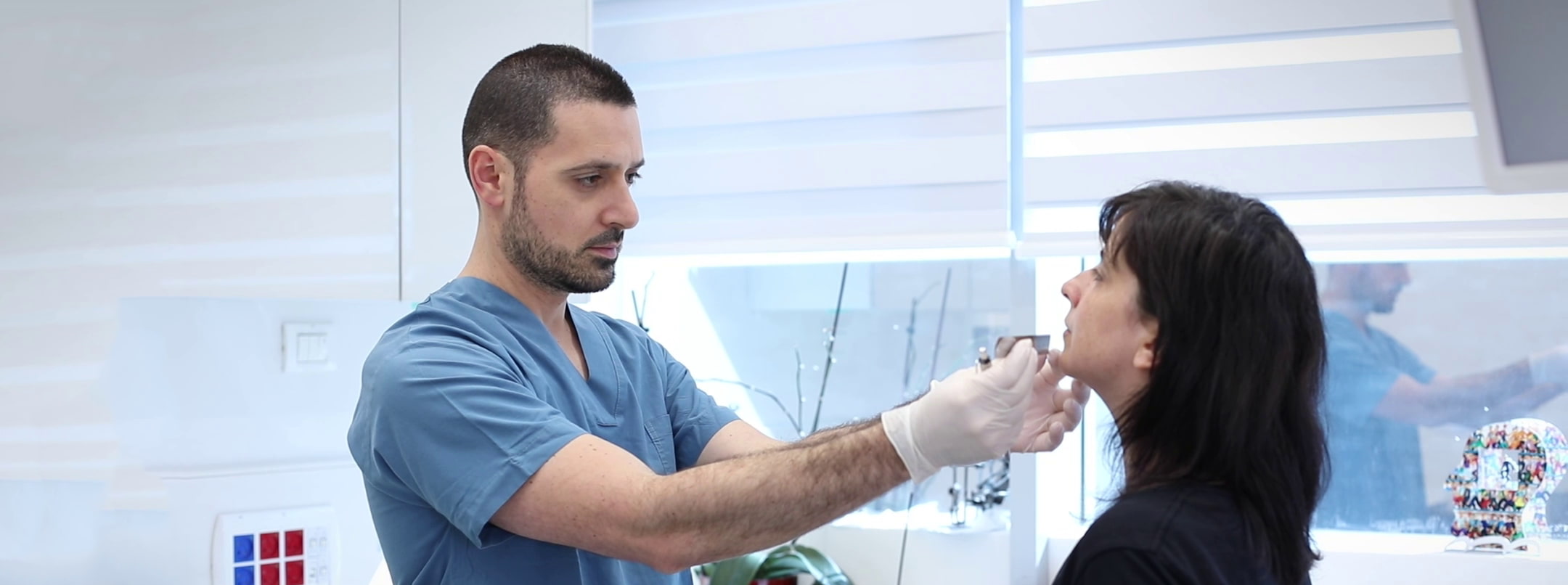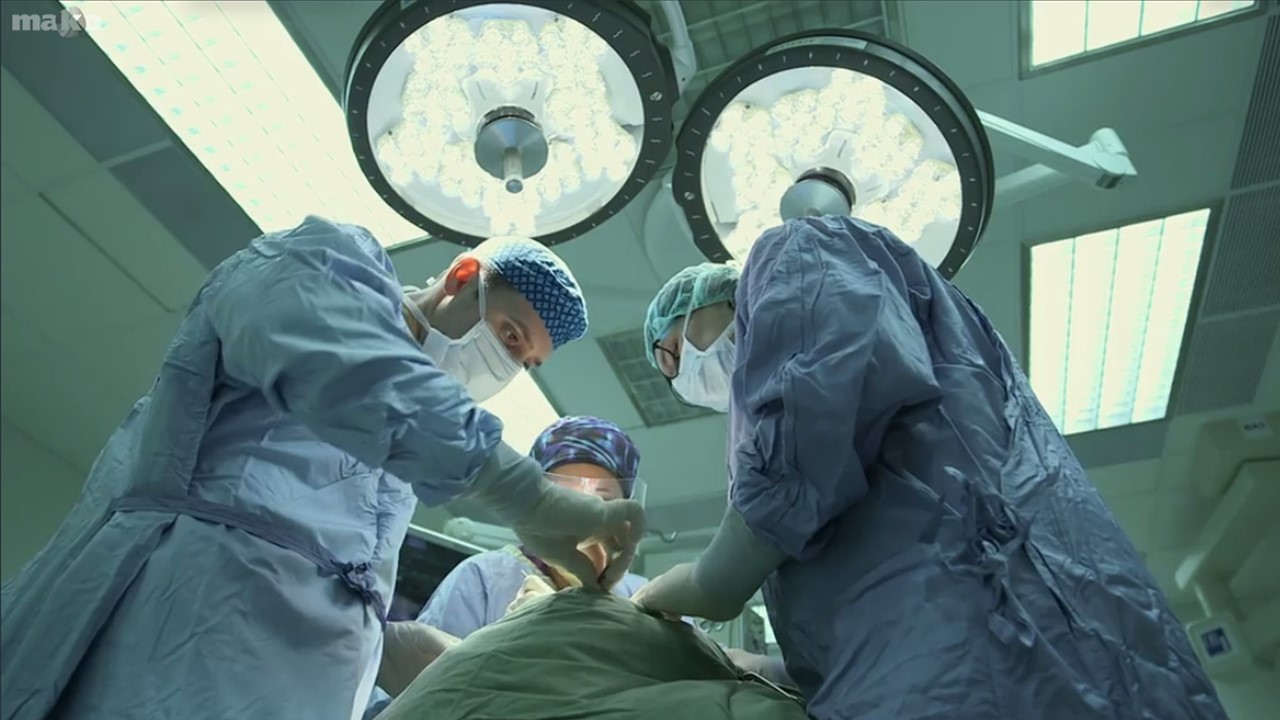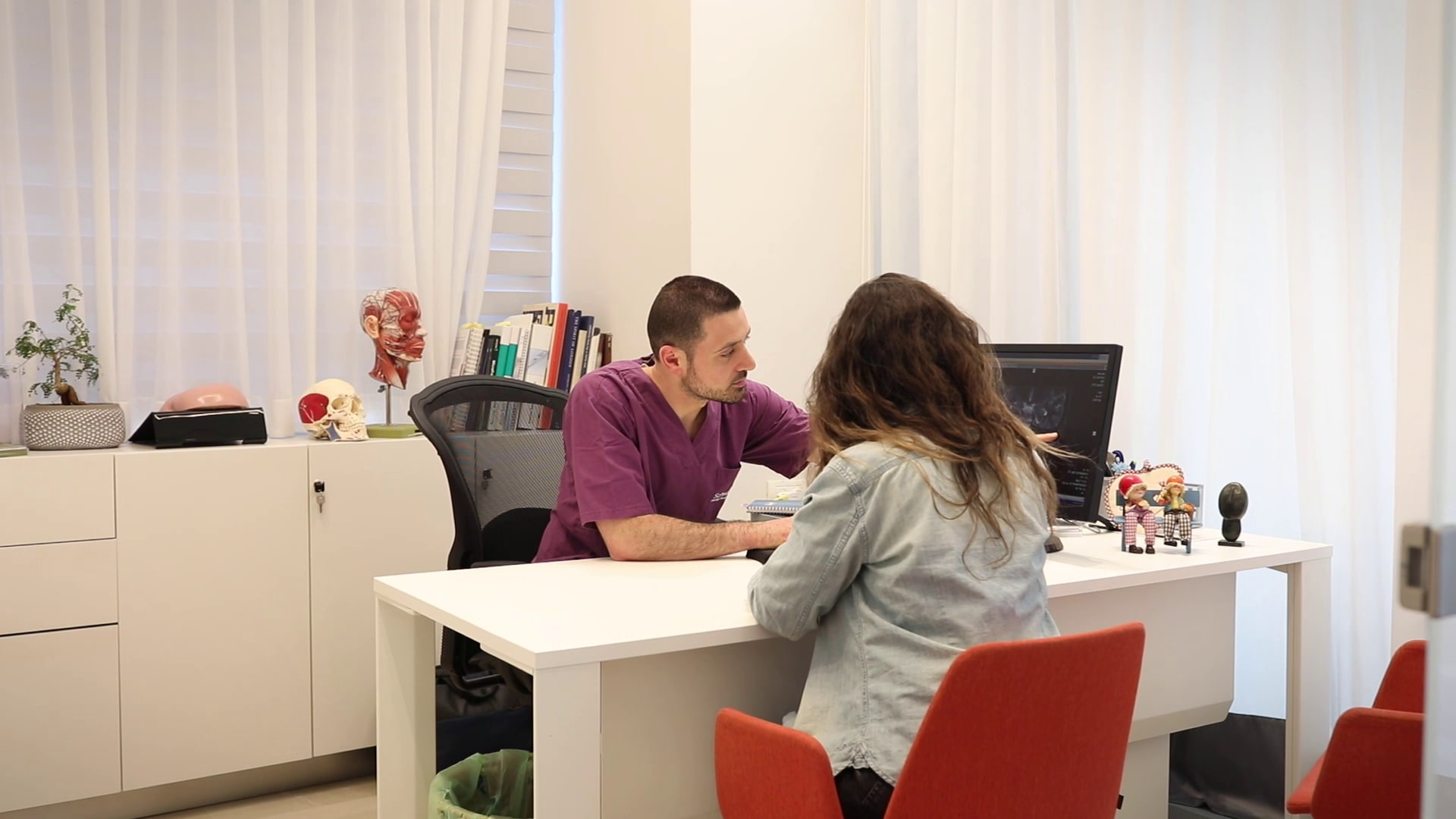
# Limited mouth opening
Limited mouth opening can result from a problem in the jaw joints, the chewing muscles, or the nearby structures. Limited mouth opening causes a significant disturbance in daily functioning such as talking, chewing, yawning, and kissing. There are many reasons that can cause a reduction in the range of mouth opening, the main ones being:
- Locking of the jaw joint
- Inflammation of the jaw joint
- Myofascial pain
- Myospasm (acute muscular contraction of the chewing muscles)
- Myofibrosis (hardening of the masticatory muscles)
- Fractured jaw
- Condylar hyperplasia
- Coronoidal hyperplasia
- Tumors in the jaw joint or nearby structures
- Radiation (radiotherapy) to the head-neck area
The medical work up of limited mouth opening begins with a comprehensive conversation with the patient in which the doctor clarifies important details regarding the duration of the lock, events that preceded the appearance of the lock, previous treatments and the response to them, relevant medical background of the patient, and more. A clinical examination follows, with the doctor going over all the anatomical structures that can cause the disorder. The last step of the investigation is imaging. The doctor will recommend the type of imaging according to the findings of the clinical examination. Among the imaging that is used to clarify limited mouth opening, there are the panoramic X-ray, CT, MRI, bone scan, PETCT, US, and EMG.
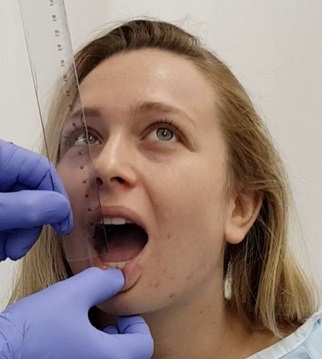
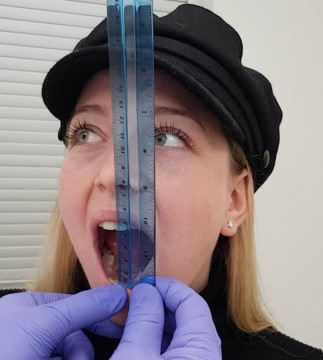
The most common reason for limited mouth opening is internal derangement, usually called closed lock. In this situation, there is a displacement of the intra-articular cartilaginous disc to a position that interferes with opening the mouth. The disorder can appear acutely or can deteriorate gradually from a state of temporary lockings that can be relieved after a few seconds or minutes to a permanent lock that does not release. The mainstay of therapy in this situation is arthroscopic (minimally invasive) during which the cartilaginous disc is moved to a position that does not interfere with the full opening of the mouth. The result is obtained immediately during the operation and the patient maintains the newly-achieved range of motion by performing self-physiotherapy exercises for a number of weeks after the arthroscopy.


